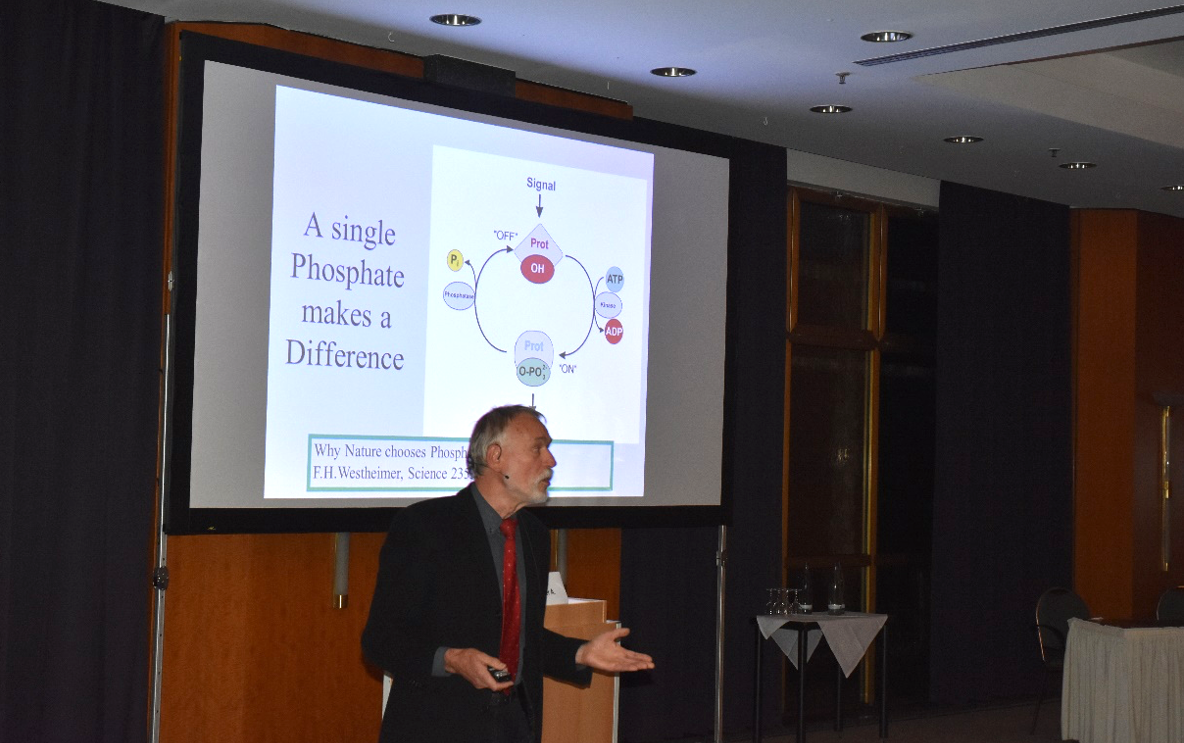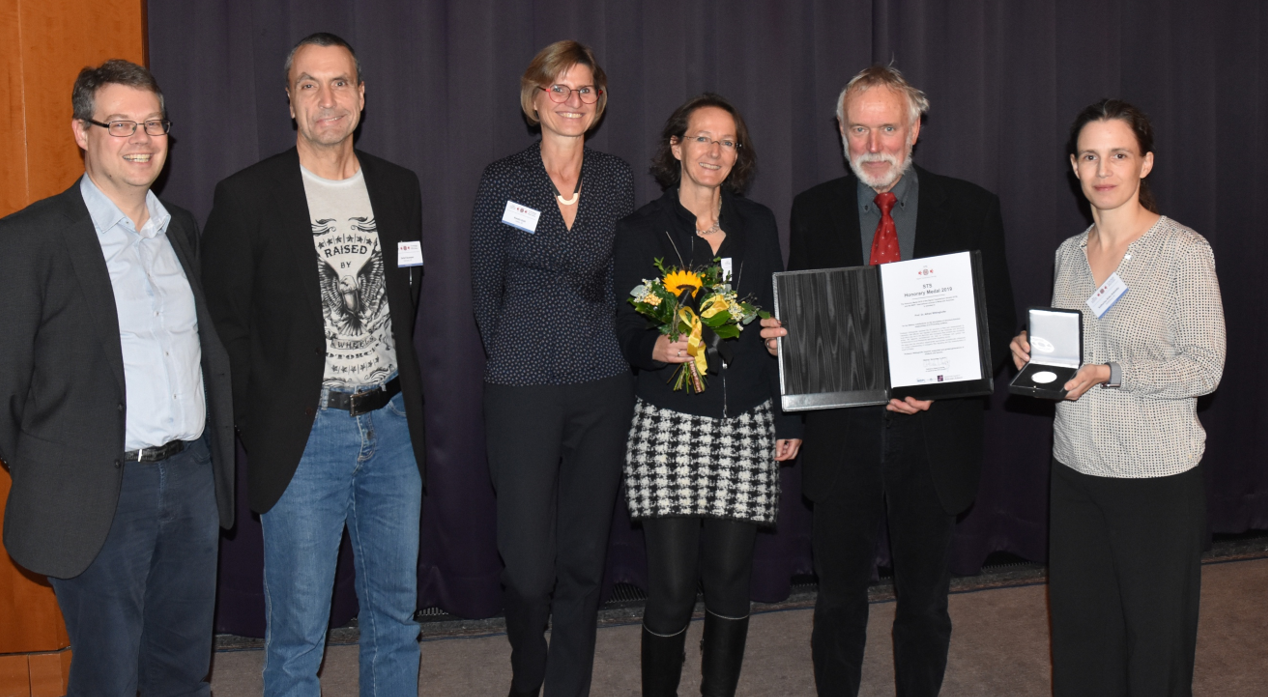Need Help?
12 December 2019
Professor Alfred Wittinghofer Awarded the STS Medal by the STS and IJMS
The Signal Transduction Society (STS) was established in 1998 in Germany as a non-profit organization dedicated to providing an interdisciplinary forum for scientists interested in signal transduction processes in cells and organisms.
Since 2010, the STS has acknowledged outstanding scientists for their ground-breaking contributions to deciphering cellular signaling pathways and concepts by awarding them the STS Honorary Medal. In 2017 the International Journal of Molecular Sciences (IJMS) became a co-sponsor of this award. In addition, the STS also supports the work of young investigators by providing travel stipends and poster prizes at the society’s annual meeting, thereby awarding the achievements of young post docs or principal investigators with the “STS Science Award”.
The STS Honorary Medal 2019 of the Signal Transduction Society (STS), supported by MDPI’s International Journal of Molecular Sciences, is being awarded to Professor Alfred Wittinghofer for his lifetime contributions to the elucidation of the structure–function relationship of GTP-binding proteins.
Professor Wittinghofer received his PhD from the German Wool Research Institute and pursued his postdoctoral work at the University of North Carolina with a focus on protein modification. He later returned to Germany where he joined the Max-Planck Institute for Medical Research in Heidelberg and continued his studies on the structure and function of proteins involved in protein biosynthesis. While leading a group working on small G proteins, such as Ras, Ran and Rap, he taught at the University of Heidelberg. Wittinghofer then moved to the Max-Planck Institute of Molecular Physiology (MPI) in Dortmund and became Director of the Department of Structural Biology from 1993 until 2009. During this time he was also an honorary professor in Biochemistry at the University of Bochum. Until 2016 he continued his scientific investigation of the structure, function, and mechanisms of GTP-binding proteins and their regulators as an Emeritus Group Leader at the MPI.
A milestone in Professor Wittinghofer’s career was the resolution of the 3D structure of Ras and the characterization of its interaction with effector and regulator proteins on the molecular and structural level, which eventually led to the understanding of why oncogenic Ras proteins are constantly active. His ideas and innovative experimental approaches dramatically influenced our current understanding of oncogenic Ras signaling and the characteristics of small GTPases.
The 2019 STS Honorary Award Ceremony was held on Tuesday, 5 November at the 23rd Meeting on Signal Transduction, organized by the STS. Prof. Gudula Schmidt (Freiburg), one of the first of Wittinghofer’s PhD students at the MPI in Dortmund, gave a moving speech praising Fred Wittinghofer’s scientific merits and personality. In his honorary lecture, Professor Wittinghofer delivered a fascinating, enthusiastic, and passionate insight into the GTPase world, and highlighted his research on the role of GTPases in ciliopathies. The award lecture was completed by a lively discussion appreciating Fred Wittinghofer’s scientific work.

Professor Wittinghofer giving his honorary lecture at the 23rd Meeting on Signal Transduction, entitled “Trends in Cancer and Infection".

The Honorary Medal 2019 of the Signal Transduction Society (STS) and MDPI’s International Journal of Molecular Sciences being awarded to Prof. Wittinghofer. From left to right: Prof. Ingo Schmitz, Prof. Detlef Neumann, Prof. Klaudia Giehl (STS council), Prof. Gudula Schmidt (laudator), Prof. Alfred Wittinghofer, and Prof. Katharina Kubatzky (Chair of the society).

